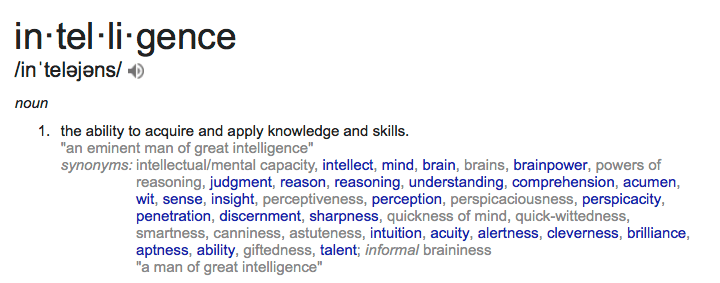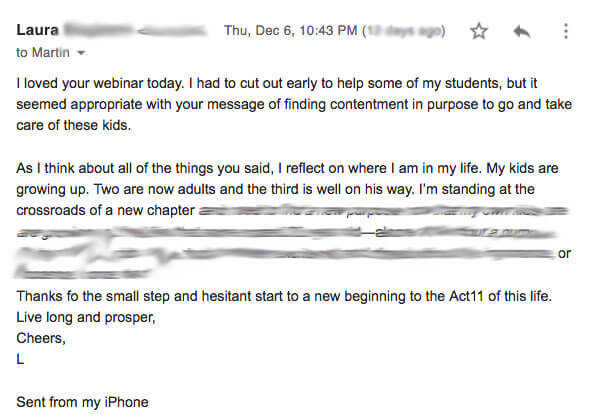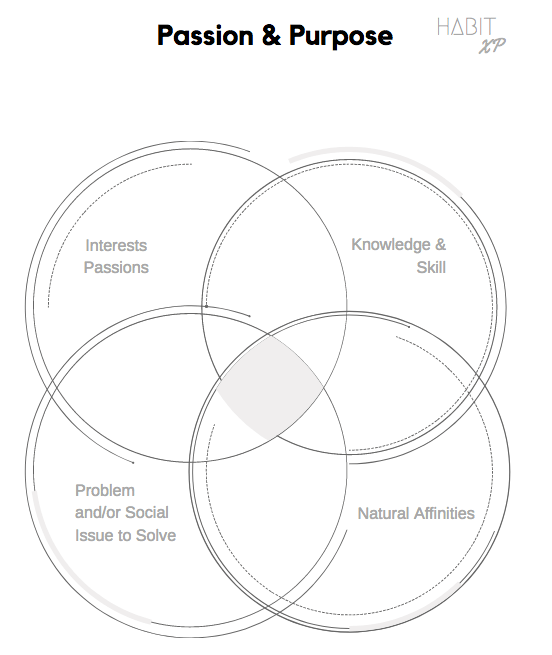[By: Martin Grunburg]
Goal achievement is difficult. The “funny” thing is that we often make it far more difficult than it needs to be.
Goal achievement exists upon a spectrum of probability. There are NO guarantees.
Thus, your main objective – the main objective – is to increase the probability as much as possible.
Having said that, after 25-plus years of personal experience, here are “The Dirty Dozen” — the 12 most common goal-setting mistakes.
Enjoy!
1) Too Big/Too Many
Much like the Three Little Bears, there is the “right-size” goal as well as the “right-size” bed or right-temperature porridge. Not too hot or cold, big or small, etc. You get the picture!
The natural question is, how do know the “right” size goal? Well, the rule of thumb (at least for initial goals and newbies) just might be this: Set the goal just outside your reach — just outside the comfort zone.
That may sound cliché, but here’s an example: If you’ve never run a marathon, then a half-marathon is a better intermediary goal. If you’ve never reached $1,000,000 in sales, then aiming for $250,000 versus a target of $1,000,000 is much wiser.
2) You’re Focusing on a To-Do List instead of Core, Recurring Behaviors (Habits)
One of the reasons why The Habit Factor® exists and has its methodology copied worldwide is that rather than following SMART goals, which leaves one ®with a To-Do List — a list of next action “steps” — The Habit Factor® proposes you focus on the core, recurring behaviors — habits — that must be created.
For instance, if the goal is running a half-marathon, focusing more on developing the running habit (following the PARR Method) vs. a one-off to-do/task list is far more efficient and effective.
Which will get you closer to your goal? Focusing on developing the running habit or, buying a new pair of running shorts, a To-Do task item?
3) You’re Not Writing Down Your Goals!
There is tremendous power in the act of crystallizing — giving life to your ideas and goals by making them visible. Moving them from the invisible realm to the visible world.
4) You Don’t Revisit Your Goals Often Enough — Ideally, Daily!
Once they are written down, it’s important to keep your goals top of mind. To revisit them at least a couple of times a day. Tracking the core-related habits helps to ensure this happens! Revisiting your goal rekindles your vision, refuels your desire and collects your focus and concentration on the task at hand.
5) No Due Date? You Haven’t Set an End Date.
What’s your target end date for the goal’s accomplishment? Due dates create pressure and, contrary to popular opinion, pressure can be a very positive force.
6) The Due Date Is NOT Realistic!
There are two important considerations when it comes to the due date. The first is to take your due dates very seriously. The second is to not take them too seriously.
You want to be hell-bent on making it happen, short of hurting yourself or anyone else.
Yet you want to be flexible enough (much like NASA) to reset the due date/launch date if things don’t fall into place.
Most people beat themselves up. They think that a missed deadline is the end of the world and further, it’s proof that goal-setting doesn’t work.
The truth is, in even the best case people tend to reach their goals by the original deadline date approximately 50% of the time.
(And yes, that’s just an approximation)
The point is, that a missed deadline isn’t a reason to quit. It’s a reason to strengthen your resolve and reset, re-calibrate and reload!
7) More Focused on the Result Than the Process
Too many times to mention, we notice people who give up on their goal as though it is out there, somewhere.
It helps to think of the goal as hiding inside of you. Your job is to develop it and yourself until it is mature enough to reveal itself.
Similar to watching grass grow. From one day to the next, there is zero-perceptible growth to the eye. However, after 6 months or even a year, the growth is unmistakable!
Trust the process. That process is PARR and Habit Alignment.
8) Related to #7: The Daily Grind Overwhelms You!
We all get sidetracked, often.
A child gets ill. There’s a car accident. The dog is sick. Your spouse loses a job… LIFE Happens.
People then start to think, “No way is my goal gonna happen.”
Nobody escapes life’s setbacks. Having said that, these are often labeled “tests from the universe” to see how much the goal is desired.
With that in mind, life’s setbacks can be viewed as an opportunity to strengthen your resolve. To get back on track! >> Tracking sheet or app and TRACK!
Reset, reload and recalibrate! Just like #6!
9) You Don’t Anticipate Setbacks
By managing the easy, you anticipate the difficult. I believe that was Lao Tzu.
Nothing is “easier” to manage than tracking core, recurring behaviors — the important habits that will carry you toward your goal.
Having said that, you should know that setbacks will intensify the closer you get toward the goal’s attainment!
Here’s a quick, personal example. After arriving for the VineMan Ironman distance triathlon in Napa Valley, I realized that my bike’s back rim and pedal had been destroyed on the flight. Yay!
The local repair shop was adamant they could not fix it. They didn’t have the right parts and they could not offer me a loaner bike.
After six-plus months of training — with the race the next day — I was being forced to give up.
I refused to give up.
We (my wife and I) remained hopeful and resourceful. Although it did seem all hope was lost, we managed to find a workaround. NOT A FIX.
A workaround that made my bike barely manageable to ride. And, to my surprise, it worked well enough to get me through all 112 miles!
The truth was that since it was my third full Ironman distance race, I was mentally prepared for the setback. I asked often, “Alright, what’s the next setback going to be and when is it coming?”
10) You Talk Too Much (SHUT your pie-hole, pls)
Do NOT talk about your goals.
That’s right, read an in-depth article about the reasons why (recent post) you should shut your trap. Even “science” backs the idea that keeping your pie-hole shut is beneficial to your most important goals.
11) You’re Impatient
We want our goals! And, we want them now! Impatience “is the height of ignorance” according to Robert Greene, author of Mastery.
Goal achievement takes time and GRIT! BTW: If GRIT is the key to success, what is the key to GRIT!? What habits do you think constitute the development of GRIT?
12) You’re Not Committed
This c ould be #1! It is not enough to be interested in your goal; you must fully commit.
For a great story about the difference between commitment and being interested, check out my interview with John Assaraf!
Well, there you have it! The Dirty Dozen common goal-achievement mistakes. Which ones might you be guilty of?
~mg












